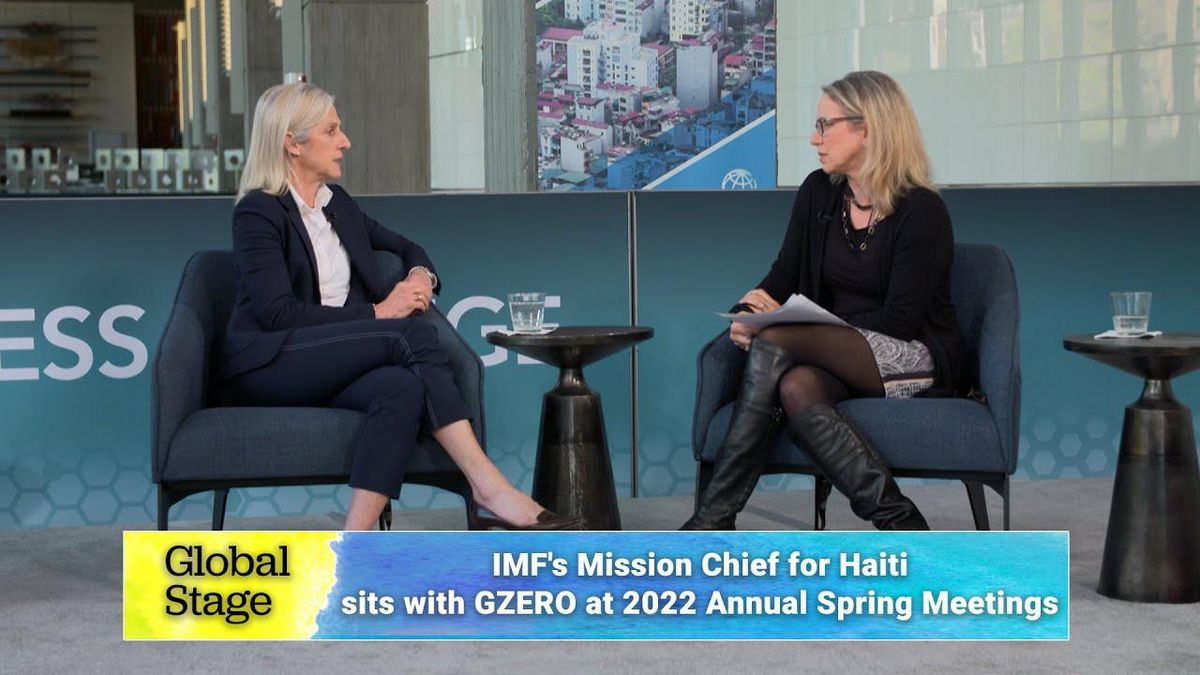Amid the current global turmoil, one country that's definitely no stranger to crises is Haiti. Haitians will surely feel the pinch of rising prices of things like food and fuel, International Monetary Fund economist Nicole Laframboise says during a Global Stage conversation with GZERO Media in partnership with Microsoft.
With more than 60% of the population under the poverty line and food inflation up 40%, it's going to be "extremely difficult for the poor," she told Shari Friedman, Eurasia Group's Managing Director for Climate and Sustainability.
Haiti didn't suffer as much from the economic shock of the pandemic as other countries because it doesn't trade much nor have a big tourism sector.
But recently the much wider concern has been what Laframboise describes as "homegrown" political instability — which undermines the ability of the government and of the IMF to provide advice on macroeconomic policy.
"It's hard. It's hard for them, and it's hard ... for us." So, what do countries like Haiti do when they can't borrow money to pay for food when it gets more expensive?
They often have no choice but to print money, which makes inflation rise even more.
"It's kind of like a vicious circle," says Laframboise, "but we are working with the authorities to help them break out of this circle."
This interview was part of a series of Global Stage interviews with international thought leaders at the World Bank and IMF spring meetings. Watch the Global Stage livestream with several of these thought leaders here.


















